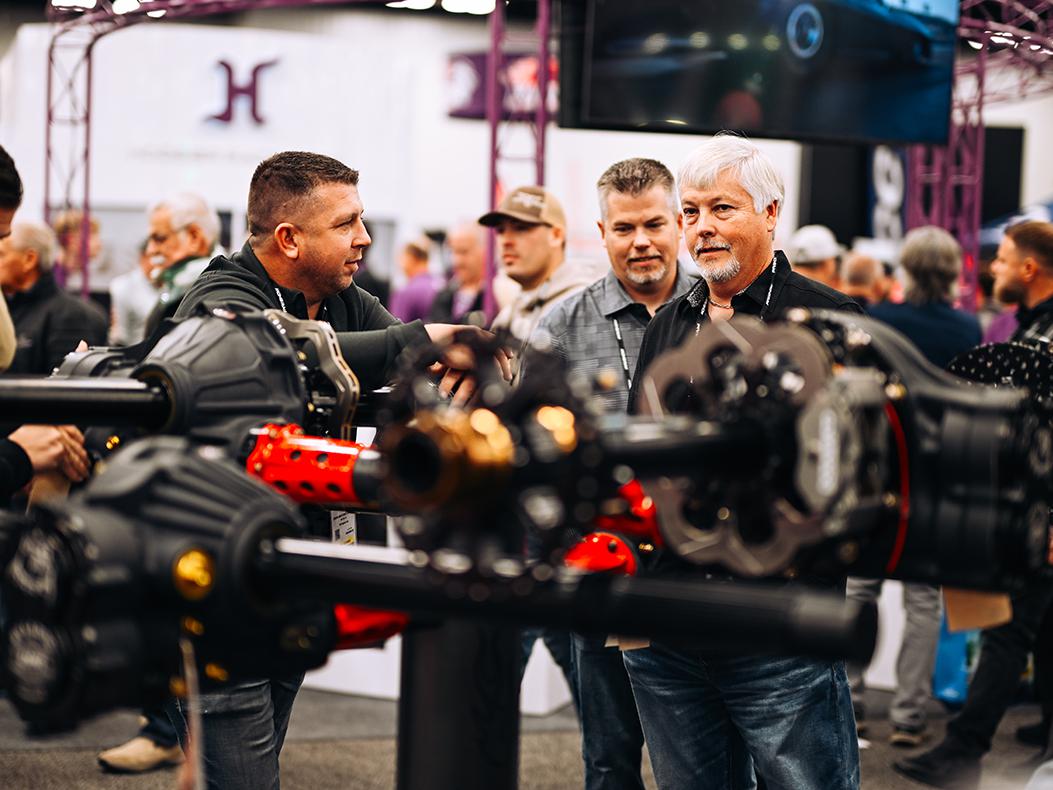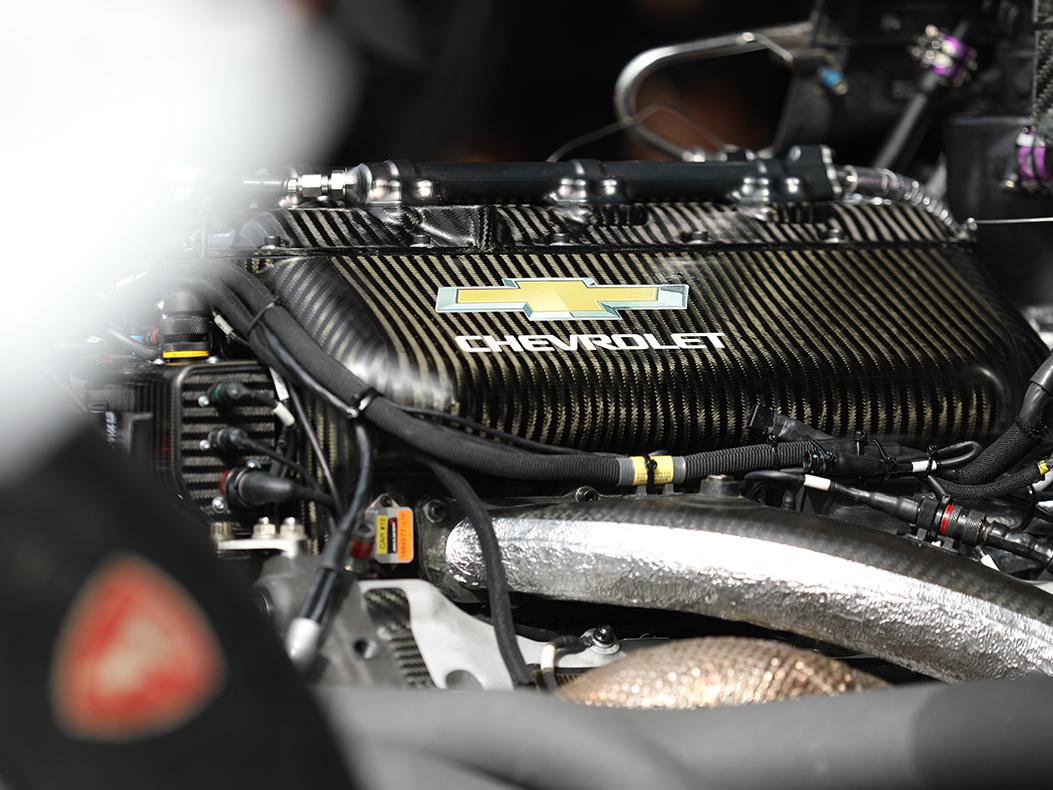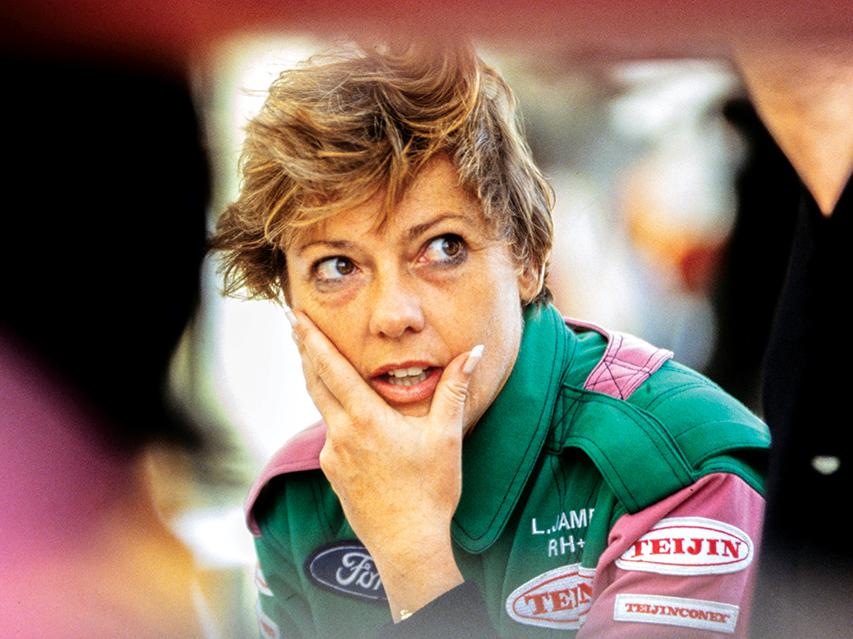Business Profile: Wild Irish Engine and Machine

This self-titled ‘boutique’ engine shop chooses its customers just as carefully as it does its employees, and is just as strategic with its promotion as it schedules an annual open house to coincide with the three biggest business days in racing.
Mention the city of Indianapolis and images of the Indy 500 or NHRA’s “Big Go” instantly come to mind. Through the years, many race teams set up headquarters in the area because of these two legendary motorsports events, and because of Indy’s somewhat central location in the nation. Where major teams are located, other motorsports events spring up, as well as the companies necessary to support them.
One such company is Wild Irish Engine and Machine in nearby Danville, Indiana. Wild Irish Engine is owned and managed by Craig Sullivan, who is becoming a well-known name in Pro Mod drag racing. Although Sullivan didn’t intend to be the owner of an engine shop, his racing path led him to that destination.
“We started Pro Mod racing seven years ago,” Sullivan recalled. ”We had purchased an engine or two from some guys, and they wanted to partner with us because of our previous success with our Super Stock and Top Dragster programs. I couldn’t get them to do exactly what I wanted, so I started my own engine shop. We pieced equipment together and kept buying back and forth. Pretty much to date we do everything in-house.” Part of those services are accomplished on a recently purchased SuperFlow SF-4000HD dyno that will handle speeds up to 12,000 rpm and 4,000 horsepower.
“We’ve done some BMW four-cylinders, two-liter four-cylinder class racing stuff that’s been successful,” said Sullivan. “We have a couple boat engine customers with ProChargers who have been successful.”
Sullivan claimed that his shop is “not a production-type facility.” Instead, he carefully selects customers. “They’re typically people who are in the middle of the pack who want to go to the top of the pack,” he explained. “Their funds are available, they’re good working people. We bounce ideas back and forth and continue to develop their program.”

Listening to Sullivan talk about the beginnings of his business, it quickly becomes apparent he has a deep-rooted love of the sport and a respect for the process to support it behind the scenes.
The enthusiasm in his voice was unmistakable as he told part of his own story: “I’ve been a car enthusiast all my life. Right now, I have a 1961 Lincoln convertible and Dave Hirata’s fuel dragster, which has been restored. I have a 1962 Thunderbird roadster that I purchased from another racer, and it’s something that I drive quite often. My father for a long time helped a little bit with Ford back in the 1960s and ran Modified Production. It’s one of the things we’ve branched out with.”
As a veteran of the automotive aftermarket for almost 30 years, including experience in the paint and body segment, Sullivan’s appreciation for cars has expanded to popular cars of other locales. He cited his Pro Mod, El Mero Mero, which is Spanish slang for the best or leader, and its nod to the low rider culture that is popular in Southern California. While he wasn’t originally an enthusiast of low riders, as he aged, he began to appreciate the skill that goes into these types of cars. “That’s why El Mero Mero is carrying the colors that it carries. It’s the appreciation for the craftsmanship,” he said.
“I’ve lived here in Indianapolis, and when you look at how the Offenhausers manufactured their own engine from back in the day, and Stutz manufactured its own engine back in the day, and look at how some of these vehicles were built, these were hand-made precision products that nobody really does any more,” he continued. “That’s why Larry Jeffers and I put together this 1949 Mercury package. It’s something nobody does anymore. Everything’s a carbon copy. We have two or three models of Mustangs, and three or four models of Camaros, and three or four models of Corvettes, and it’s kind of what everybody sees at the race track. We wanted to stand out.
“I’ve always been known to have a different type of vehicle that may or may not fit the class we’re racing,” he added. “It’s about being different, standing out. We really look forward to, on the sponsorship side, people seeing you standing out. Craig Sullivan Motorsports may only get one No. 1 qualifier in Pro Mod ever in our life, but when you’re competing with the Tutterows and the Salemis, you just want to qualify and win a race. When you do beat those people, it’s like winning the world championship in my eyes, because these are generations of racers. We’re just dumb bracket racers, and I feel very fortunate to race with these people.”
Efficient Operation
While Wild Irish Engine and Machine is not a huge operation, it is a well-organized and well-managed company that is growing at a rate that makes sense in order to maximize its value to the customer and keep its three employees busy but not overwhelmed.
Sullivan brought Tommy Radloff on board in 2020 to run the engine shop. “We’ve been blessed with his expertise and what little bit of knowledge I have to excel at what we do,” Sullivan said. Radloff’s diverse engine building resume includes stints in NASCAR, drag racing’s Pro Stock and Competition Eliminator classes, plus he is a two-time Jegs Super Quick Series champion.

“We operate in a building that I own, that’s 16,000 square feet, and we run the engine shop out of about 4,000 square feet of it,” Sullivan said. “We’re located in Danville, Indiana, so we’re only seven miles from the Top Fuel teams and Funny Car teams in Brownsburg. There’s also a lot of sprint car guys around us. Sprint car racing is pretty large in the Midwest.”
Wild Irish Engine offers all of the services these and other kinds of customers need. “We do anything from the manufacturing side with our CNC mill application. We do all kinds of block work and block repair. We just made some main saddles two weeks ago to repair a Miner Brothers Hemi. Line bore and line hone, cam research, head development, valve jobs, cleaning with ultrasonic cleaners. We work with Phil Esz of UltraSonic LLC on a lot of our ultrasonic products,” he said.
With a location that’s so well-suited to bring in a variety of racing customers, highly competent employees are required to keep the business successful and in demand. Finding and keeping these team members happy is the biggest challenge Wild Irish Engine is faced with. Although the majority of the employees have come to the company already experienced, Sullivan knows that’s never enough, himself included.
“We still look for continuing ed for everybody,” he explained. “Education’s important when you’re trying to be on the cutting edge.”
Going hand-in-hand with continuing education is internal training for new employees, which can be tedious at times. As Sullivan shared, “It’s a slow process. It’s a lot of shadowing, a lot of trial-and-error, but in the engine business, when a customer brings his block in for repair, you can’t afford failure. We take somebody who knows exactly what they’re doing, and they come in and it’s a one- or a two-hour process. When training that person, it’s going to take two to three hours by the time we have to check in the middle and check in the end until they’ve earned that spot to know that we don’t have to check it because they fit our expectations and our customers’ expectations.
“If you’re looking at someone who’s blowing a main bore out or straightening a main line out, and they make a mistake and we have to create inserts, well, the customer’s not happy at that point,” he continued. “When you’re taking 0.004 inches out to align the main bore, now you have to take a 0.350-inch cut out of it, and you have to make a saddle to go in the main. That’s hard for a customer to accept that kind of mistake. You take a block that’s thrown a rod out of it, go in to hone it and it’s 0.008 inches out of round. It takes a skilled technician to get that there. If you put someone inexperienced on it, the piston’s never going to fit it, because you have to go 0.014 inches to 0.018 inches to get it there, then you have a set of pistons to buy. If you’re in a class situation, you go past the max bore and then you have to put a sleeve in it. It’s very difficult to find that person that you trust to get in the door and then still be able to maintain profitability.”

Sullivan said he has three positions “available today, and I have under-qualified or not-qualified people who want to be hired, but still want to be paid as if they’re a productive employee. You can’t make a profit that way, so it’s difficult at that point to hire anybody. Somebody who’s fresh out of school may think they’re worth $45,000–$50,000, and they have no experience. They have a general knowledge of a piece of equipment that they’ve learned to use, or a general knowledge of how they might be able to take a transmission out of a Pro Mod, but they haven’t done it. So they can’t turn that out in 30 minutes like a professional can. They’ll take three hours, and they’re going to make mistakes. Mistakes cost money as well. So I really have to look at you closer, and you have to look closer at who you’re hiring to be able to sustain profitability.”
When he does find these top-quality employees, the biggest factors in keeping them is providing benefits, treating the employees fairly, and creating a good working environment, which are challenges that Wild Irish Engine and Machine meets to the best of its ability.
“The problem with small business is you can never give good benefits,” stated Sullivan. “We’ve found a way to be able to provide a good quality healthcare product for our employees, and for our older employees that really matters. We have paid sick days, holiday pay, vacation, 401(k) is available. We do everything we can to keep these people in the market. We try to make it the best it can possibly be. We make it a family-type environment. It doesn’t mean that it’s perfect—we all fight with brothers, sisters, moms, and dads, it’s just part of life. We try to keep everybody happy. When someone wants a raise, we have to say, ‘Show me how you’re going to make me more money.’ It’s a little rough on them the first couple times that happens, but then when they put their head to it and consider the overhead and income there is to it, they find a way to make more money. We just put our heads together and do some unconventional things, ways I won’t get into because we have to keep ahead of our competition. It’s taking care of business. You can’t treat all employees the same because they’re not.”
Customer Accolades
The management approach taken at Wild Irish Engine and Machine has proven successful, and customers take notice of this by recognizing the quality of the end product. One such customer is racer Mark Woodruff, who said, “We use Wild Irish engines in our Pro Mod and our RvW [Radial vs. the World] car. In the high-performance engine business, one of the struggles I see with some companies is the management, you know, ordering parts, done in a timely fashion, over-deliver and under-promise, because most of them don’t meet the deadline. It always costs more than what they said it would be, or there are parts delays.
“One of the reasons I moved my engine program to them is Tommy Radloff being there running the engine shop and Craig managing the business,” Woodruff continued. “From my years of experience competing against Craig in business, I knew I was going to be dealt with right. In all the years I’ve known him, at the end of the day he tries to do the best job he can possibly do for the customer. All of his cars and engine programs I’ve been able to be a part of, with tuning and helping and bouncing ideas off one another, they’ve really turned that screw-blown Hemi in the Mercury to where that thing makes some good power. Tommy has a really good handle on what it takes to make that engine platform perform. That’s part of the reason I made the switch. They do what they say they’re going to do. It’s done in a timely manner; race-proven horsepower. With the horsepower they make, that thing speaks for itself. I came out with that new car and won the first three races I went to with it. That’s pretty spectacular in my opinion.”
‘Boutique’ Engine Shop
The customers see the Wild Irish Engine and Machine team as thinking out-of-the-box from top to bottom to get results. This perspective goes hand-in-hand with how Sullivan himself views the company. “There’s been a lot of these boutique coffee companies, boutique clothing stores, we just look at ourselves as a boutique engine shop,” he explained. “Until we can get the employees brought into our facility, we really have all the work we can do. We’re constantly looking for the employees to build the racing business and the engine business, because once you find good ones, you make room for them whether you need them or not, and then figure out what you can do to turn that into a profit center.”
The boutique engine-building attitude and the quality of the employees the company develops results in a product that attracts loyal customers, including Darren Meyer, whose main business is building superchargers.

“I’m not an engine builder,” he explained. “I’m good at it, I enjoy doing it, so I usually do it on a limited basis. When I need to get something done—let’s say I have a guy who needs an engine, and I just can’t do any more—I’ll send him to Craig. And Craig, I know, will do the work how I want it done. They’ve been doing things this way for a number of years, the right way. The nice thing about Craig is, if I want it upside down and purple, when I get it, I get it upside down and purple. It’s exactly what I want. Some machine work I’ll send his way or customers that I can’t get to right away. I like to guide my customers to success. It’s part of what I do as well at the race track, above making superchargers.
“Other customers come to me for help on how to run a Pro Mod car or help to run a program, and I usually educate them,” continued Meyer. “Because I want to keep that kind of reputation, when I can’t do the work, I want to be able to look the guy in the face and say, ‘It’ll be done right.’ I lay out the build for Craig. For this guy, he gets what he wants, I know he gets what he wants, and when he calls me at the track and needs help or guidance, it’s easy to do because what you perceive sitting there in their pit is what is sitting there in their pit. That’s why I send stuff to Craig. For me, I don’t like being the guy who guided somebody wrong. The customer would be unhappy about it, and I wouldn’t be happy about it either.”
Marketing is often required to attract and retain customers. Like everything else, Wild Irish Engine doesn’t follow a standard formula, though. Sullivan reported, “We don’t really do a whole lot of marketing for the engine shop because at this point, we’re trying to manage the amount of work we have for our employees. We have some Factory Shootout engines that we maintain, and those need to be ‘quick-turnaround,’ but at the same time, Tommy runs the racing side as well. So there are gaps there where we might be out two weeks racing, and he’s not there to manage, so we’re having the employees march on those five days when he’s gone.

“There are more engine customers out there than there are machine shops and engine builders,” Sullivan continued. “With the employees we have, we’re working them at a max load now, not trying to overwork them and burn them out. We’re not letting the greed or the want of success drive everybody’s work. We want to keep happy employees, a good work ethic, and a quality product.”
One method Sullivan uses to showcase his business to customers and prospective customers is having an open house that coincides with the annual PRI Trade Show. When asked about how this strategy works, Sullivan said, “It’s all about customer expansion. We have manufacturers that come in and want to talk about development of products. If somebody comes up with a product for a blower application, and they’re not really blower manufacturers or don’t have a lot of knowledge, there’d be at least two blower manufacturer guys there they could talk with, so it’s a real good networking situation. We usually have anywhere from 80 to 250 people who show up. We’ve done it, I think, two years with COVID-19 coming into it. But it’s definitely opened some eyes when people have walked through and seen
some of the services we offer and our employees.”
 MEMBERSHIP LOGIN
MEMBERSHIP LOGIN JOIN PRI
JOIN PRI


